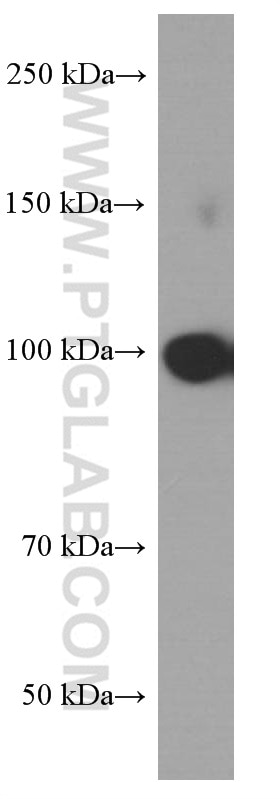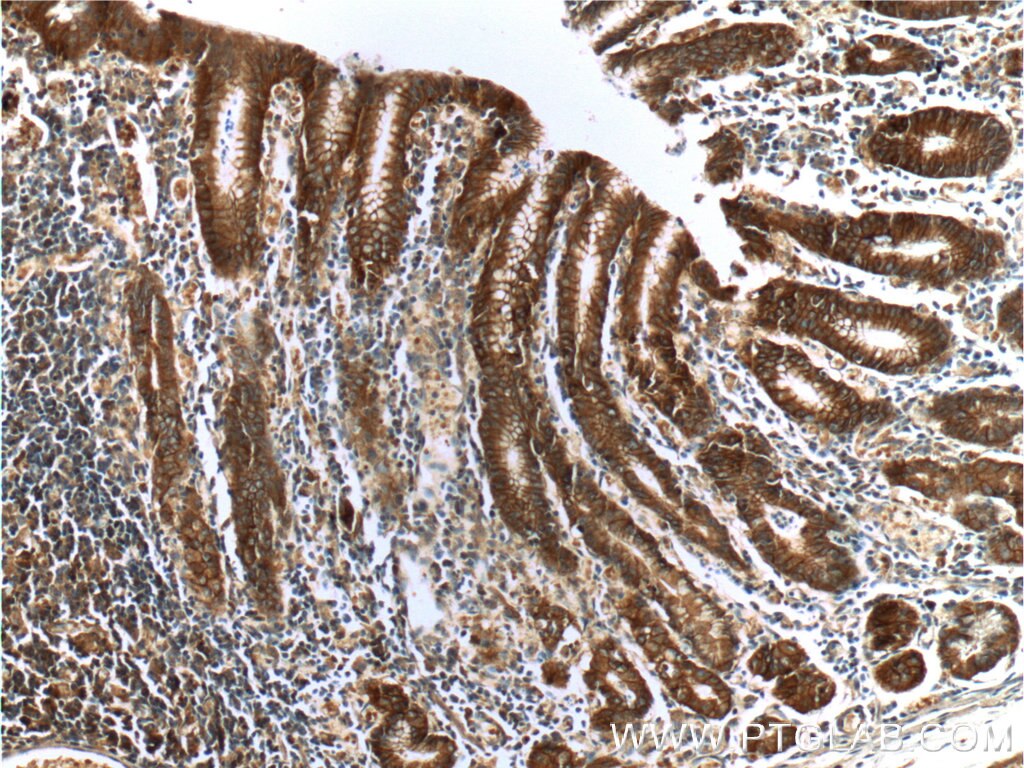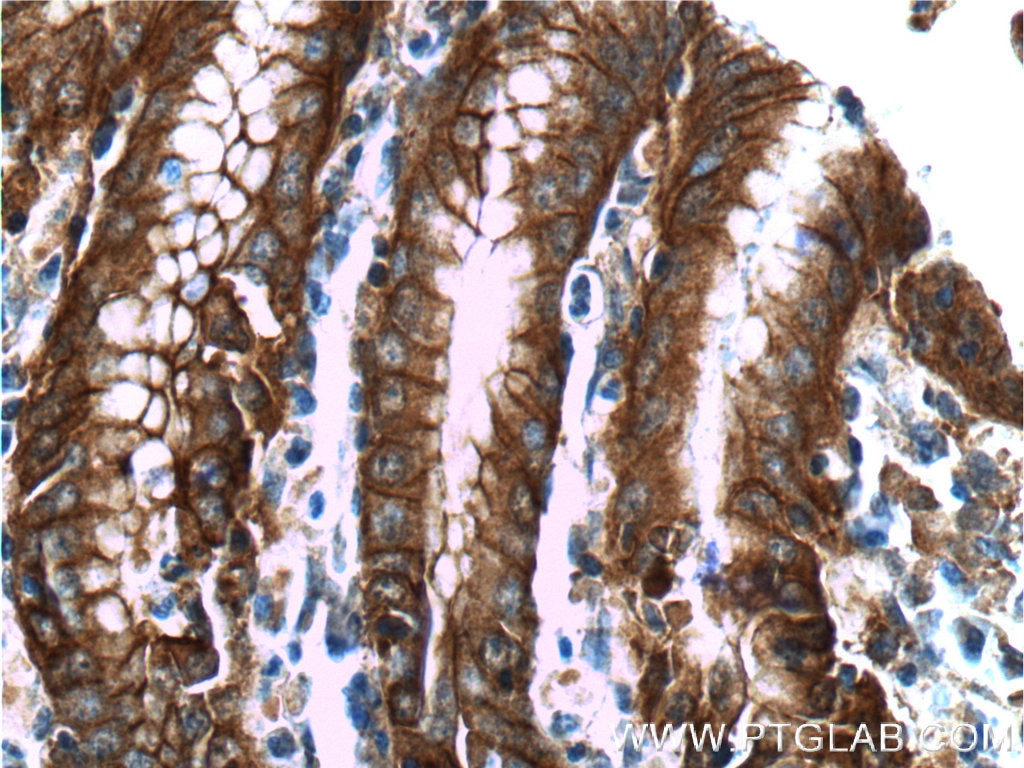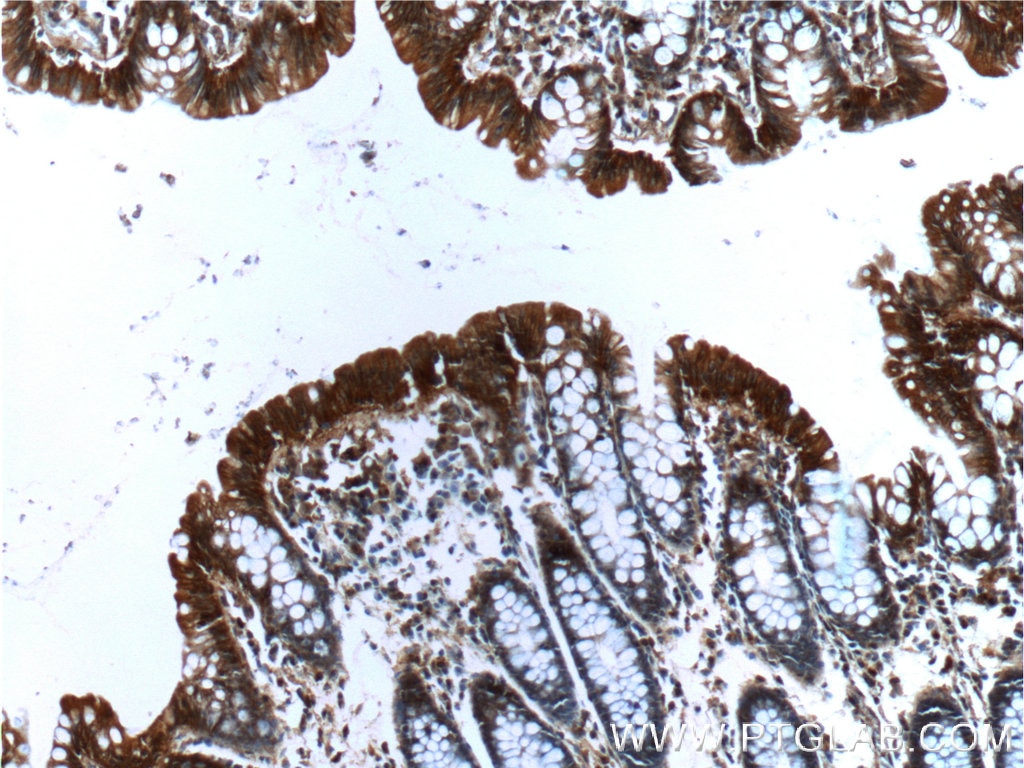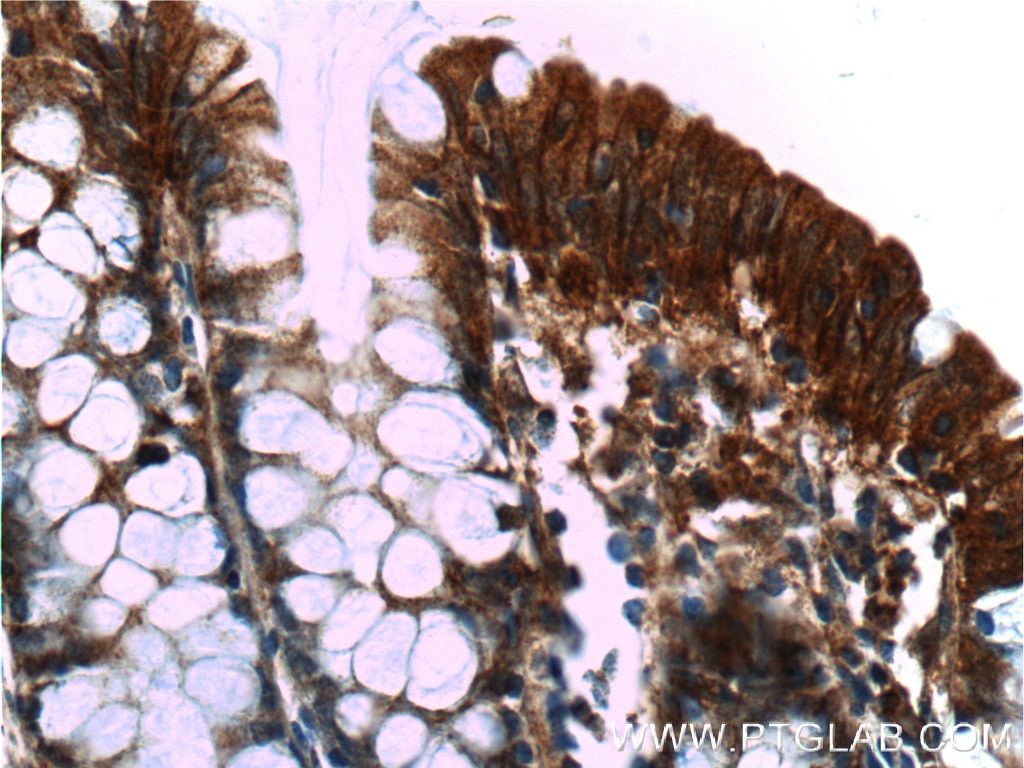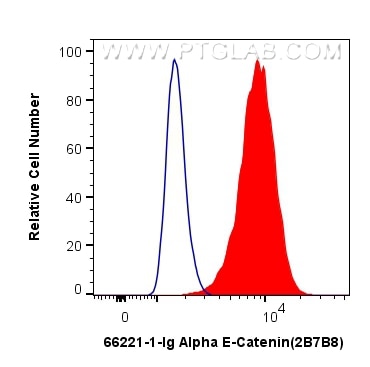Tested Applications
| Positive WB detected in | NIH/3T3 cells |
| Positive IHC detected in | human stomach tissue, human colon tissue Note: suggested antigen retrieval with TE buffer pH 9.0; (*) Alternatively, antigen retrieval may be performed with citrate buffer pH 6.0 |
| Positive FC (Intra) detected in | MCF-7 cells |
Recommended dilution
| Application | Dilution |
|---|---|
| Western Blot (WB) | WB : 1:500-1:2000 |
| Immunohistochemistry (IHC) | IHC : 1:50-1:1000 |
| Flow Cytometry (FC) (INTRA) | FC (INTRA) : 0.40 ug per 10^6 cells in a 100 µl suspension |
| It is recommended that this reagent should be titrated in each testing system to obtain optimal results. | |
| Sample-dependent, Check data in validation data gallery. | |
Published Applications
| WB | See 2 publications below |
| IHC | See 2 publications below |
Product Information
66221-1-Ig targets Alpha E-Catenin in WB, IHC, FC (Intra), ELISA applications and shows reactivity with human, mouse samples.
| Tested Reactivity | human, mouse |
| Cited Reactivity | human, mouse |
| Host / Isotype | Mouse / IgG1 |
| Class | Monoclonal |
| Type | Antibody |
| Immunogen |
CatNo: Ag23603 Product name: Recombinant human CTNNA1 protein Source: e coli.-derived, PET30a Tag: 6*His Domain: 188-536 aa of BC031262 Sequence: SEMDNYEPGVYTEKVLEATKLLSNTVMPRFTEQVEAAVEALSSDPAQPMDENEFIDASRLVYDGIRDIRKAVLMIRTPEELDDSDFETEDFDVRSRTSVQTEDDQLIAGQSARAIMAQLPQEQKAKIAEQVASFQEEKSKLDAEVSKWDDSGNDIIVLAKQMCMIMMEMTDFTRGKGPLKNTSDVISAAKKIAEAGSRMDKLGRTIADHCPDSACKQDLLAYLQRIALYCHQLNICSKVKAEVQNLGGELVVSGVDSAMSLIQAAKNLMNAVVQTVKASYVASTKYQKSQGMASLNLPAVSWKMKAPEKKPLVKREKQDETQTKIKRASQKKHVNPVQALSEFKAMDSI Predict reactive species |
| Full Name | catenin (cadherin-associated protein), alpha 1, 102kDa |
| Calculated Molecular Weight | 906 aa, 100 kDa |
| Observed Molecular Weight | 95-100 kDa |
| GenBank Accession Number | BC031262 |
| Gene Symbol | Alpha E-Catenin |
| Gene ID (NCBI) | 1495 |
| RRID | AB_2881612 |
| Conjugate | Unconjugated |
| Form | Liquid |
| Purification Method | Protein G purification |
| UNIPROT ID | P35221 |
| Storage Buffer | PBS with 0.02% sodium azide and 50% glycerol, pH 7.3. |
| Storage Conditions | Store at -20°C. Stable for one year after shipment. Aliquoting is unnecessary for -20oC storage. 20ul sizes contain 0.1% BSA. |
Background Information
Alpha catenin is an essential component of adherens junctions that connects E-cadherin-β-catenin complexes with the actin cytoskeleton. It also recruits a range of other important proteins to developing intercellular junctions. Three alpha catenins exist in human: alpha-E-catenin, alpha-N-catenin, and alpha-T-catenin, which share substantial amino-acid sequence similarity but have distinct tissue distribution. alpha-E-catenin is ubiquitously expressed, alpha-N-catenin is restricted to neuronal tissue, and alpha-T-catenin is primarily expressed in heart tissue. Reduced levels of alpha-E-catenin protein seem to be characteristic of many different human cancers, including malignant tumours of the breast, colon, stomach, oesophagus, bladder and liver. In addition, the loss of alpha-E-catenin often correlates with the degree of tumour differentiation and metastasis.
Protocols
| Product Specific Protocols | |
|---|---|
| FC protocol for Alpha E-Catenin antibody 66221-1-Ig | Download protocol |
| IHC protocol for Alpha E-Catenin antibody 66221-1-Ig | Download protocol |
| WB protocol for Alpha E-Catenin antibody 66221-1-Ig | Download protocol |
| Standard Protocols | |
|---|---|
| Click here to view our Standard Protocols |
Publications
| Species | Application | Title |
|---|---|---|
Int J Mol Sci Histological and Immunohistochemical Studies to Determine the Mechanism of Cleft Palate Induction after Palatal Fusion in Mice Exposed to TCDD. | ||
Oncotarget YAP1 enhances cell proliferation, migration, and invasion of gastric cancer in vitro and in vivo. | ||
Mol Med Rep Wild-type KRAS inhibits the migration and invasion of pancreatic cancer through the Wnt/β-catenin pathway |

